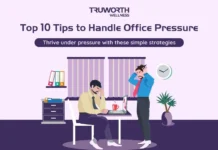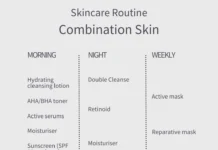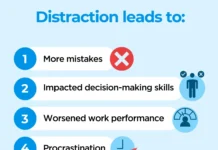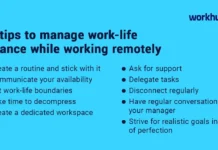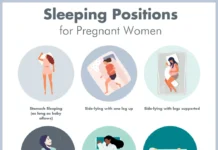Can’t sleep? Melatonin supplements may help, but it’s important to understand how the hormone works and the potential side effects.
Known as the “Dracula of hormones,” melatonin might be your best weapon if you have difficulty falling asleep or staying asleep at night. (1)
Melatonin is a natural hormone produced by the pineal gland. This gland is located near the middle of the brain, and for the most part, the pineal gland remains relatively inactive. That is, until you’re ready to sleep. (2)
Melatonin and Sleep: The Basics
Melatonin is a unique hormone because it’s only released in the dark. (1) It prepares your body for sleep. And typically, melatonin levels increase in the bloodstream about two hours before bed. (3) This causes a sleepy feeling, resulting in a restful night.
But melatonin doesn’t only help you feel sleepy, it also helps your body stay asleep. According to the National Sleep Foundation, melatonin levels remain elevated in your blood for about 12 hours. It isn’t until the return of daylight that these levels drop. (1)
Most people produce enough melatonin to fall asleep and stay asleep with no problem. (3) But not everyone is as fortunate. And if your body doesn’t produce enough melatonin naturally, you may need to supplement with synthetic melatonin.
Oral forms of synthetic melatonin include melatonin gummies, pills, liquid, chewables, and capsules. You can purchase the hormone in other forms, too. These include melatonin sprays, powder, patches, and creams.
What Are Melatonin Supplements?
Melatonin supplements help regulate your sleep cycle. And interestingly, melatonin is the only hormone available in the United States without a prescription. (1) You can purchase these supplements from grocery stores, pharmacies, and health food stores.
While people who produce enough melatonin might not have an issue with sleep, melatonin levels can change over time and for different reasons.
One belief is that melatonin levels drop with age. (4) Also, having a circadian rhythm disorder can affect melatonin production. These are sleep disorders that interfere with the timing of sleep, such as delayed sleep phase syndrome (5), in which a delay in falling asleep leads to difficulty waking up.
Learn more about melatonin supplements and sleep
Is Melatonin Safe?
Melatonin is a dietary supplement, and like other supplements, it’s regulated by the U.S. Food and Drug Administration (FDA). But it isn’t approved by the FDA for any use. (6)
Therefore, you may ask, is melatonin safe? You may also have questions about melatonin for kids.
Generally speaking, synthetic melatonin is safe for most adults, although its use should be avoided in pregnant women and in those who are breastfeeding, says Chrisoula Politis, MD, director of sleep medicine at Mercy Medical Center in Rockville Centre, New York. (3)
Melatonin for Kids
Melatonin is also safe and works for children.
But keep in mind that some people are more sensitive to synthetic forms of the hormone than others.
Also, more research needs to be done on the effects and safety of long-term use of melatonin in children.
Melatonin should be avoided in children with immune disorders.
What Are the Possible Side Effects of Melatonin?
Melatonin isn’t medicine, but you can experience side effects if you’re sensitive to the supplement.
The upside is that side effects of melatonin are usually mild and subside as your body adjusts.
Side effects vary, but include:
- Irritability
- Drowsiness
- Nausea
- Diarrhea
- Headache (7)
Melatonin has also been known to exacerbate depressive symptoms, and should be used with caution in those suffering from depression, according to Dr. Politis. (4)
Experiencing side effects doesn’t always mean that you should stop taking melatonin. The decision to stop will depend on the severity of your side effects, and whether they improve or continue.
Of course, it’s all about tolerance, too. If you take melatonin and repeatedly experience cramps or diarrhea the next day, you might be sensitive and need to consider other options for better sleep, perhaps chamomile tea or lavender oil. (8,9)
To reduce the likelihood of side effects, always start with a low dose of melatonin. Only increase your dose as needed. (10)
Many brands of synthetic melatonin contain 5 to 10 milligrams (mg) per serving, which is more than what people often need to regulate their sleep cycle. (2)
Some adults only need a little melatonin, while others need more. Children can typically get by with a lesser amount, too.
This doesn’t mean that you can’t take 5 or 10 mg every night, but you should discuss this with your doctor first to ensure your body can handle a larger dosage.
Also, consult with your doctor if you take any prescription medication. This includes drugs for depression and diabetes, as well as anticoagulation medication, immunosuppressants, and corticosteroids. (4)
“You should disclose all your medicines to your doctor or pharmacist prior to taking melatonin to assure there’s no potential interaction,” warns Politis.
Melatonin can also cause an inflammatory response in the body, so the supplement isn’t an ideal choice for people who have certain autoimmune diseases. (4)
Learn more about the potential side effects of melatonin
Melatonin Dosage: How Much to Take?
As previously mentioned, some melatonin brands might suggest a dose of 5 to 10 mg per night.
While this is the recommendation, most adults don’t need more than 1 to 3 mg of melatonin per night. (3) It’s actually ideal to start with a dose of 0.3 mg. (1,2) Children can also start with a low dose.
Of course, the right melatonin dosage for you may not be the right dose for another person. Finding the right amount is sometimes a matter of trial and error. But typically less is more. So rather than starting at a high dosage and working your way backwards, start low and work your way upwards.
Melatonin Dose Chart
You can also ask your doctor for a melatonin dose chart.
A dose chart is helpful if you’re thinking about giving melatonin to a child who has sleep issues due to a developmental or neurological problem.
Some children can take up to 6 mg of melatonin per night. (13) Only give your child this much under a doctor’s supervision.
Does Melatonin Help You Go to Sleep?
Although melatonin is widely used to help people sleep, it isn’t a sleeping pill, nor does it cause immediate sleep.
If you take a sleeping pill, you may fall asleep within 30 minutes of ingesting the medicine. Melatonin doesn’t have the same effect.
With melatonin supplements, your body gradually become sleepier until you fall asleep. It might take up to two hours from the time you take melatonin until you finally fall asleep. This is why you should take the supplement about one to two hours before bed. (3)
Can Melatonin Cure Insomnia?
Melatonin doesn’t cure insomnia per se, but it does treat sleeplessness in some people. The supplement can be taken multiple nights in a row, but it shouldn’t be used long term. (4) Further research is needed to determine the effects of long-term use. (2)
If you have difficulty going to sleep or staying asleep, take melatonin for a couple of nights or weeks, and then stop taking the supplement for a few days to see if your sleep improves. If not, see a sleep specialist to rule out a disorder. Rather than develop a habit of relying on melatonin, get to the root of the problem.
Keep in mind that chronic issues with sleep might not be an inability to produce melatonin naturally, but rather the result of poor sleep hygiene.
Remember, melatonin is triggered by darkness. For your body to release this hormone, you need to be in a dimly lit environment. (1)
Whether you realize it or not, several habits can impact melatonin production, and sleeping in less than complete darkness is one factor that contributes to sleep problems, says Carolyn Dean, MD, a sleep expert and author of 365 Ways to Boost Your Brain Power: Tips, Exercise, Advice.
Also, keeping electronic devices next to your bed, like a cellphone and computer, might create problems, as the electromagnetic fields that they emit can hurt your sleep, continues Dr. Dean.
Making a few minor changes can improve your sleep hygiene and help put an end to insomnia without the use of melatonin supplements. Here’s what you can do: (14,15)
- Avoid caffeine, alcohol, or nicotine four to six hours before bedtime.
- Wear earplugs or listen to white noise.
- Keep your bedroom at a comfortable temperature.
- Close blinds and shades to block out light.
- Turn off the TV.
- Don’t nap in the late afternoon.
- Don’t exercise too close to bedtime.
- Only go to sleep when you’re actually tired.
- Don’t drink fluids too close to bedtime.
It’s also important to make sure you get enough of the sleep mineral magnesium, explains Dean.
“Magnesium facilitates sleep-regulating melatonin production, and studies have shown that magnesium helps you get a deep and restful sleep,” she says. “Magnesium also relieves muscle tension that can prevent restful sleep and activates GABA [gamma-aminobutyric acid], the main inhibitory neurotransmitter of the central nervous system. The activation of GABA receptors favors sleep.” (16)
As a side note, melatonin isn’t only beneficial for insomnia. While more research is needed to understand the effects of the hormone, the supplement may help with the following conditions: (6,11,17)
- Cancer
- Alzheimer’s disease
- Amyotrophic lateral sclerosis (ALS or Lou Gehrig’s disease)
- Nighttime high blood pressure
- Irritable bowel syndrome
- Reproductive issues
Final Word: So, Can Melatonin Help You?
Melatonin can be a godsend when you have trouble going to sleep or staying asleep. Of course, better sleep habits, like dimming the lights at night and avoiding stimulating activities before bed, contribute to your body producing melatonin naturally.
If these measures don’t work, taking oral melatonin or another form of the hormone might provide the restful sleep you need with minimal side effects. Just make sure you start with a low dose, and don’t take too much.
Resources We Love


Editorial Sources and Fact-Checking
References
- Melatonin and Sleep. National Sleep Foundation.
- Melatonin. American Academy of Family Physicians. January 12, 2018.
- Melatonin for Sleep: Does It Work. John Hopkins Medicine.
- Melatonin. Mayo Clinic. March 30, 2018.
- Treatments for Delayed Sleep Phase and Non-24. Circadian Sleep Disorder Network. February 5, 2019.
- Melatonin: In Depth. National Center for Complimentary Integrative Health. May 2015.
- Took Too Much Melatonin. National Poison Control Center.
- Natural Sleep Aids: Home Remedies to Help You Sleep. John Hopkins Medicine.
- Koulivand P, Ghadiri M, Gorji A. Lavender and the Nervous System. Evidence-Based Complementary and Alternative Medicine. March 14, 2013.
- How Much Melatonin Should You Really Be Taking. National Sleep Foundation.
- Can You Overdose on Melatonin. Tuck. January 23 ,2018.
- Low Blood Pressure: Diagnosis. Mayo Clinic. March 10, 2018.
- Swanson W. Using Melatonin to Help Children Fall Asleep. Seattle Children’s Hospital Research Foundation. September 14, 2015.
- Tips for Better Sleep. Center for Disease Control and Prevention. July 15, 2016.
- Sleep Hygiene. National Sleep Foundation.
- Power Down Vitamins: Promote Better Sleep With Magnesium. National Sleep Foundation.
- Siah K, Wong R, Ho KY. Melatonin for the Treatment of Irritable Bowel Syndrome. World Journal of Gastroenterology. March 14, 2014.




